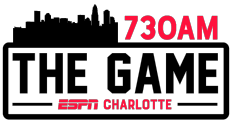Better late than never.
In a historic agreement, the NCAA and its five power conferences, the ACC, SEC, Big Ten, Big 12 and Pac-12, have come to terms on a multibillion-dollar settlement that would settle a trio of federal antitrust cases and allow schools to directly pay student-athletes, according to ESPN’s Dan Murphy and Pete Thamel.
The involved parties released the following statement:
“The five autonomy conferences and the NCAA agreeing to settlement terms is an important step in the continuing reform of college sports that will provide benefits to student-athletes and provide clarity in college athletics across all divisions for years to come,” NCAA president Charlie Baker and the five power conference commissioners said in a joint statement Thursday night.
“This settlement is also a road map for college sports leaders and Congress to ensure this uniquely American institution can continue to provide unmatched opportunity for millions of students. All of Division I made today’s progress possible, and we all have work to do to implement the terms of the agreement as the legal process continues. We look forward to working with our various student-athlete leadership groups to write the next chapter of college sports.”
The NCAA will dole out $2.7 billion over the next decade in damages to both current and former athletes, according to ESPN’s report.
Embed from Getty ImagesWhile athletes dating back to 2016 are eligible and entitled to a piece of the settlement, the terms of the agreement dictate that athletes cannot sue the NCAA in future antitrust lawsuits and must drop their current complaints in three ongoing lawsuits, House v. NCAA, Hubbard v. NCAA and Carter v. NCAA.
Schools will reportedly enter into a revenue-sharing plan that allows them to disperse up to $20 million per year to their student-athletes. The revenue sharing is not expected to begin until fall 2025.
The pending settlement does not mean student-athletes will be directly considered school employees, though such efforts will continue. And another high-profile lawsuit against the NCAA, former Colorado football player Alex Fontenot’s lawsuit regarding how the NCAA shares its television revenues with the players, remains ongoing and will not be a part of this potential settlement.
The current settlement still has to go through one final step, needing the approval of Judge Claudia Wilken and is contingent on past and former college athletes choosing not to join a separate antitrust case. If a number of players choose to join Fontenot’s lawsuit instead, the settlement agreed upon by the NCAA and conferences could become null and void and fall through the cracks.
Thursday’s news has the potential to be the latest milestone in the ever-evolving landscape of collegiate sports.
“We recognize that we’re just on the front end of this entire process,” Josh Whitman, Illinois athletic director and chair of the NCAA’s Division I Council, told ESPN. “There’s a lot to be sorted out as we try to really wrap our arms around some of the details that we’re putting in place now.”


